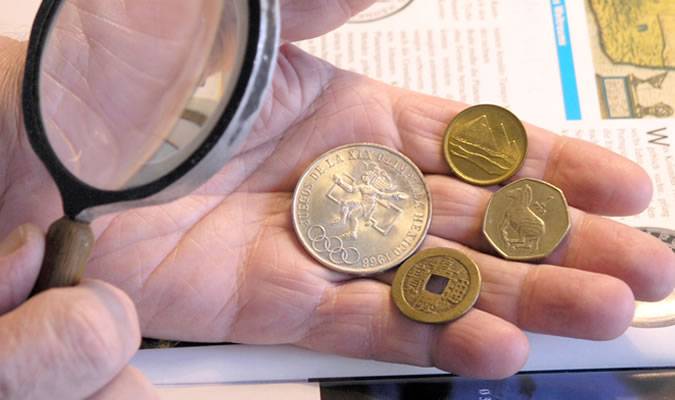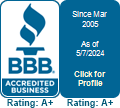
After collecting coins off and on for years as a child, I have been involved in numismatics on a full time basis, since 1979. During that time, I have run my own coin dealership, worked for Heritage on two different occasions, been a buyer for David Hall, worked for Pinnacle Rarities and was a grader at NGC for seven years.
Buy, Value or Appraise Your US Coins
Bid or buy US coins for sale, value your item, or request a free appraisal to sell your collection.
And, as I like to tell people, numismatics runs in my blood, literally – numismatic pioneer B. Max Mehl was my grandmother’s uncle. I am proud to have that numismatic connection and always do my best to honor it.
I created the list of collecting tips below, in order to help collectors enjoy and benefit more from our wonderful hobby.
- Buy/collect what YOU like. But keep in mind that when it comes time to sell, not everyone else will necessarily like what you did/do.
- Examine as many coins as you can which have been graded by the most highly respected grading companies. This can be done at coin shows and in auctions and is a great way to improve upon your grading skills.
- The best way to improve your grading ability is to find someone who is highly qualified AND willing to spend time reviewing coins with you. That person can be a dealer or collector, but he needs to be more than just a friend – he needs to be a teacher. Many individuals are “qualified” OR “willing to spend the time”, but few are BOTH.
- Don’t keep buying coins without ever selling any of them – learn what it’s like to try to sell, too. Once in a while you should offer one or two of your coins back to the dealers you acquired them from. See how they deal with that type of situation and whether they want to re-acquire those “gems” they sold to you.
- Don’t be afraid or embarrassed to ask lots of questions. You and just about everyone else can learn a great deal that way.
- Be aware of privacy and security concerns. It might not be fun to do so, but it’s extremely important.
- It’s always good to get a second opinion. Doing so doesn’t make you less knowledgeable, worthy or confident – it simply makes good sense.
- Don’t try to get bargains at the expense of quality and desirability, or you’ll likely end up with sub-par coins which aren’t bargains, anyway.
- Generally, I advise against “investing” in coins. Even if you are very well informed, based upon buy/sell spreads and other factors, the odds are against your success. That said, I understand that many collectors end up spending significant sums of money on their collections and can’t/shouldn’t ignore the financial implications.
- If you are going to “invest”, I’d suggest diversification – not putting too much of your money into one coin or one coin type. I’d also recommend staying away from especially esoteric and/or illiquid and/or currently “hot” items.
- While it is not a pleasant mindset to engage in, think about and plan for how your coins should be disposed of if/when something happens to you. Make your spouse and/or family and/or friends and/or an attorney aware of your wishes. If you have a particular dealer or coin/auction company that should be contacted, have that information recorded, along with costs, sources, purchase dates, etc., of your coins.
- Eye-appeal is hard to ignore, but technical quality shouldn’t be over-looked/compromised.
- If you participate in auctions, whether over the Internet or in person, set your price/bidding limits in advance and stick to them. Auction fever hits many bidders, and almost always to their detriment.
- Find time for other activities that don’t have anything to do with coin collecting. Don’t make coins your whole life – life is too short for that.
- If you are going to stretch to buy a coin, do it for a coin which is truly special and/or virtually irreplaceable, not on an ordinary one. There are far more of the latter than of the former, and there will almost always be other opportunities.
- Don’t talk yourself into buying a coin. If something about it bothers you now, there is an excellent chance it will bother you as much or more later.
- Don’t be lulled or suckered into a false/unrealistic sense of security by the strength of many areas of the market that we have experienced for several years now. There are good markets, and, while some current participants might not have experienced them yet, there are bad markets too – I promise.
- Do not buy rare coins on a sight-unseen basis, regardless of the seller or the images.
- Enjoy our hobby.
- I repeat, enjoy our hobby.
Check out Heritage’s FREE coin price guide for quick answers on what your item could be worth.
By Mark Feld


Wisdom. This list is so good on so many levels. Kudo’s!
Dear Mr. Isaac,
Thank you very much for your kind remark.
should old us coins be cleaned or left as is, to resell.what is safest way to clean silver and copper coins
Dear Mr. Gillespie,
Please don’t clean your coins, as, depending upon the cleaning method used and the specific coin, that often diminishes its value. If you have questions about cleaning, consult an expert.
This was great.
Thank you!
I’ve always wanted to “pick the brain” of a coin guru and these tips are very helpful.
Thanks again.
Aron
I do not collect coins, but have an interest in collecting in general. I collect baseball cards mainly and, I must say, this advice could easily adhere to collector’s of all types. By the way. Do people collect stamps any more?
Dear Mr. Merrill,
People do, indeed, still collect stamps. However, I have heard that the hobby is on the decline and that the age of the average collector is quite old.
Hello Mark,
First, great list of tips. Second, tip 11. when would you consider diversification achieved? Would it be as simple as modern gold vs modern silver, or modern world coins vs modern US coins? or Spot bullion vs government issued (currency) bullion? Not sure I asked the question well, but I hope you can get the jest of my question. Should the focus be on coins with underling precious metal compositions ensure floor on price as its relative spot prices of precious metal the coin is comprised of?
Hi Kraig and thank you.
In order to try to avoid confusion, my suggestion regarding diversification was included as part of tip 10, not 11.
Different types of coins and segments of the market can perform very differently from one another. But my guess is that “modern gold” and “modern silver” tend to move in tandem, at least if the coins in question trade largely based on their bullion value, as opposed to their rarity. So I would not necessarily consider that diversification.
On the other hand, I would think that modern world coins vs. modern US coins would at least be more likely to move independently of each other. Again, that could apply if their values are based largely upon scarcity and not their precious metal content.
It’s up to you to decide whether you should acquire coins with a focus on underlying precious metal composition, which serves as some type of price floor. However, I refer you back to tips #1 and 19 – please let them be your guide.
Thanks Mark, Yes I intended to reference tip 10, and thanks for responding here and on NGC registry. Do you have any recommendations on a book(s) or any resources that would be beneficial to help improve a novice’s ability to grade coins. Well probably shouldn’t use the word grade, but rather differentiate between XF, AU, MS quality at a glance. Keys to look for to know quickly this is definitely an AU58 at best no way NGC will assign a MS to it. My focus is on proof coins more so than business strikes, incase their is a significant difference, but wouldn’t want to lose out on a good resource because it doesn’t address proofs directly.
I would recommend starting a thread on the NGC forum and asking for suggestions for good coin grading books – hopefully, that way, you will receive a number of good recommendations.
In regard to grading Proof coins (as well as uncirculated coins), as opposed to circulated coins – I don’t think written guidelines offer a lot of practical help. General guidelines for grading Proof and uncirculated coins are typically too imprecise to allow you to narrow down the grade in a meaningful way. And in the case of Proof coins, in particular, images usually don’t tell you what you need to know with respect to grade. That’s largely due to the fact that the grade of Proof coins is usually heavily influenced by hairlines, which often aren’t apparent in images.
thanks for the tips! very complete and comprehensive list
I like what you said about not looking for bargains at the expense of quality. It makes sense that getting a good coin wouldn’t be as neat if it was in bad shape. I want to start collecting coins, so I have been looking for tips. These should really help, thanks for sharing!